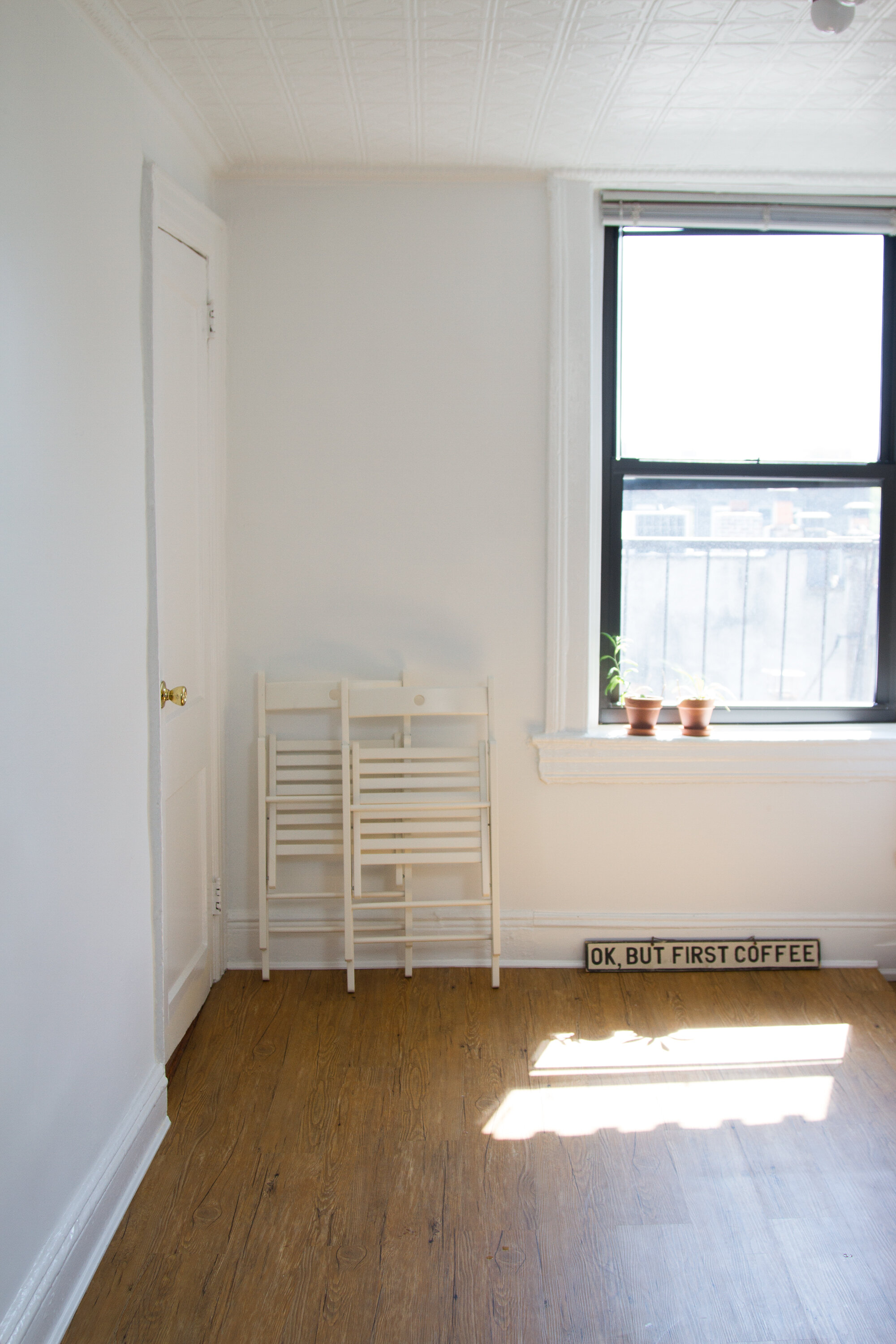
Maureen Beeker Paal | The Moksi Collective
I first met Maureen when we bumped into each other on the street here in Brooklyn. She mentioned that she was a reader of my blog and mentioned that after spending eight months traveling the world with her husband and two daughters, she’d just settled into a new life in Brooklyn. Needless to say, I was intrigued. In this interview we chat about what it’s been like to live a nomadic lifestyle, how frequent moves have impacted a family with kids, and what it’s been like to live in a relatively empty apartment for more than six months.
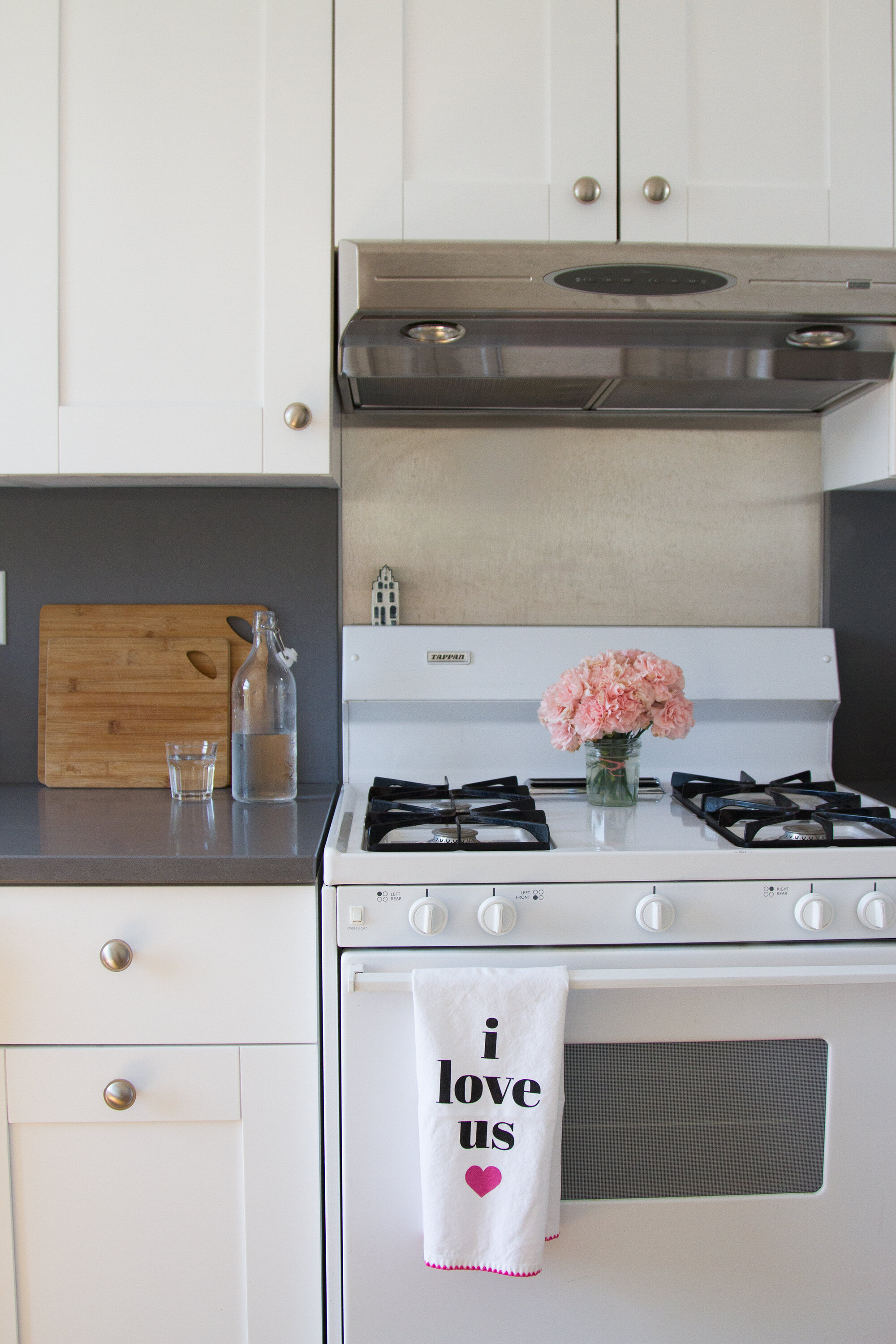
Erin: You’ve recently settled in Brooklyn after almost a year of traveling the world with your family, but even before your world trip, you moved frequently and to far-flung places. Can you give readers a quick sense of the places you’ve called home and where you guys went on your world trip?
Maureen: It’s funny, but looking back on our nomadic lifestyle, we never really planned to move so much, or for so many years. We’ve been living this way for the past fourteen years, since we moved from Amsterdam to Houston, Texas in 2002 due to my husband Daniel’s work. At the time we had one daughter, Noa, who was four years old, and we decided to take the only grandchild of both our families and move to the other side of the ocean. You can imagine that in a time when not everyone was using a cellphone or even had Skype or WhatsApp, that moving so far away was a big deal, but luckily both our families and friends have always been very supportive of us.
Before that move, I stopped working and we sold our first home, gave away some of our belongings and the rest of the stuff we shipped in a container to our new and much bigger house in Texas. We thought we would be living in America for three to five years and then perhaps move back to The Netherlands. As it turned out our plans changed—due to my husband’s work again–and after two years we had to move back, but we knew that we wanted to live abroad again and we planned for another future move. We eventually bought a home in a village outside of Amsterdam which we renovated and still have (we rent it out while we’re not living there).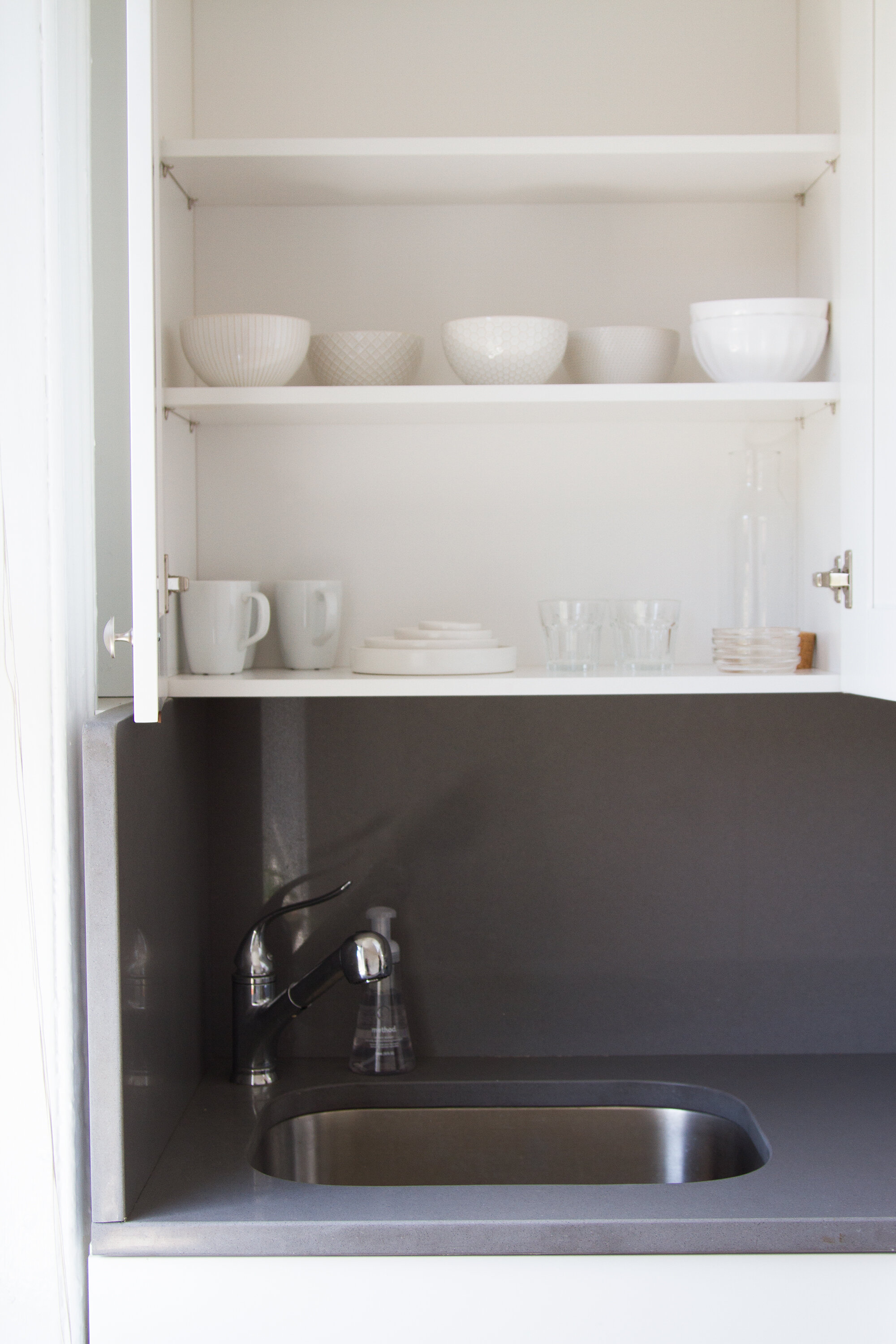
In the summer of 2007, we went on summer holiday to the United States & Canada and we haven’t stopped moving since. From there, we spent five years in a small village outside of Zurich, Switzerland, and then in 2012 we moved to Dubai, one of the seven emirates of the United Arab Emirates. For three years, we lived right at the beach in a high-rise apartment in a busy part of Dubai. In 2015, we were at yet another crossroads: Daniel stopped working for the big corporate company and wanted to work for himself and be more flexible with his time; Noa graduated from high school and decided to take a gap year before starting college; Zoe, our second daughter, was still small enough to be taken out of school and to be road schooled; and I had been talking about wandering the world together as a family for years!
Last year on July 1, 2015, we said goodbye to our lives in Dubai and embarked on a eight-month world trip with only our four backpacks. We went from Africa, to Southeast Asia, to China and Japan, followed by Australia and New Zealand and the plan was to end in Hawaii and take it from there. At the end of our trip we decided to extend it a little longer, to combine work with pleasure and we flew to New York City in January 2016. There was a snowstorm at the time and even though the weather was cold, we all really liked the Brooklyn area where we were staying. We decided to make another big leap and start a new chapter in New York City. That’s where we are today. 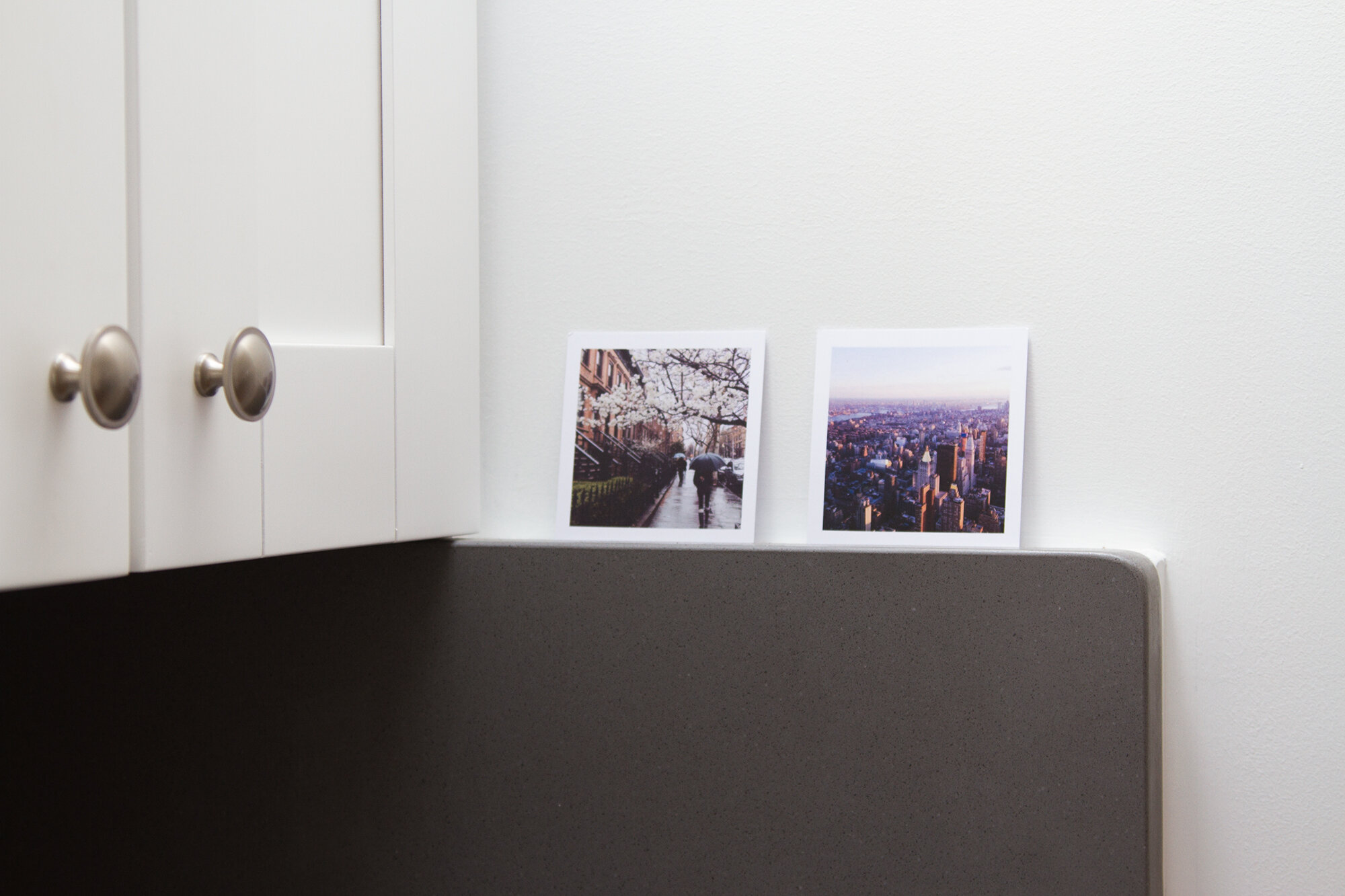
Erin: How have you approached settling into each of your new homes? Do you have particular rituals or habits that help you get feel settled in a new place? Or are their particular items that you always tote with you that make you feel at home?
Maureen: With every move we have made, we have always given away some of our items for free—big or small—to everyone we know and who is interested. When we settle into a new place, we first check if it comes with appliances or window treatments, but otherwise we start fresh with the big items. Electrical appliances have different voltages in every country, and I’ve honestly lost count how many times we’ve needed to buy appliances. Then, if there is enough storage space, we figure out what we want to keep to use and what can be put away in boxes. Each house or apartment has a different layout and style, so not everything will work in each place. Normally one of the first items I like to unpack and decorate with, is a couple of framed black and white photos of us all. Sadly, after this last move, everything is still in a shipping container, so we’ll have to wait for this.
One of my habits on the first day we get new keys—or before we start sleeping there—is to burn a nice scented candle. It’s just a simple way of making the house feel like our place instead of someone else’s.
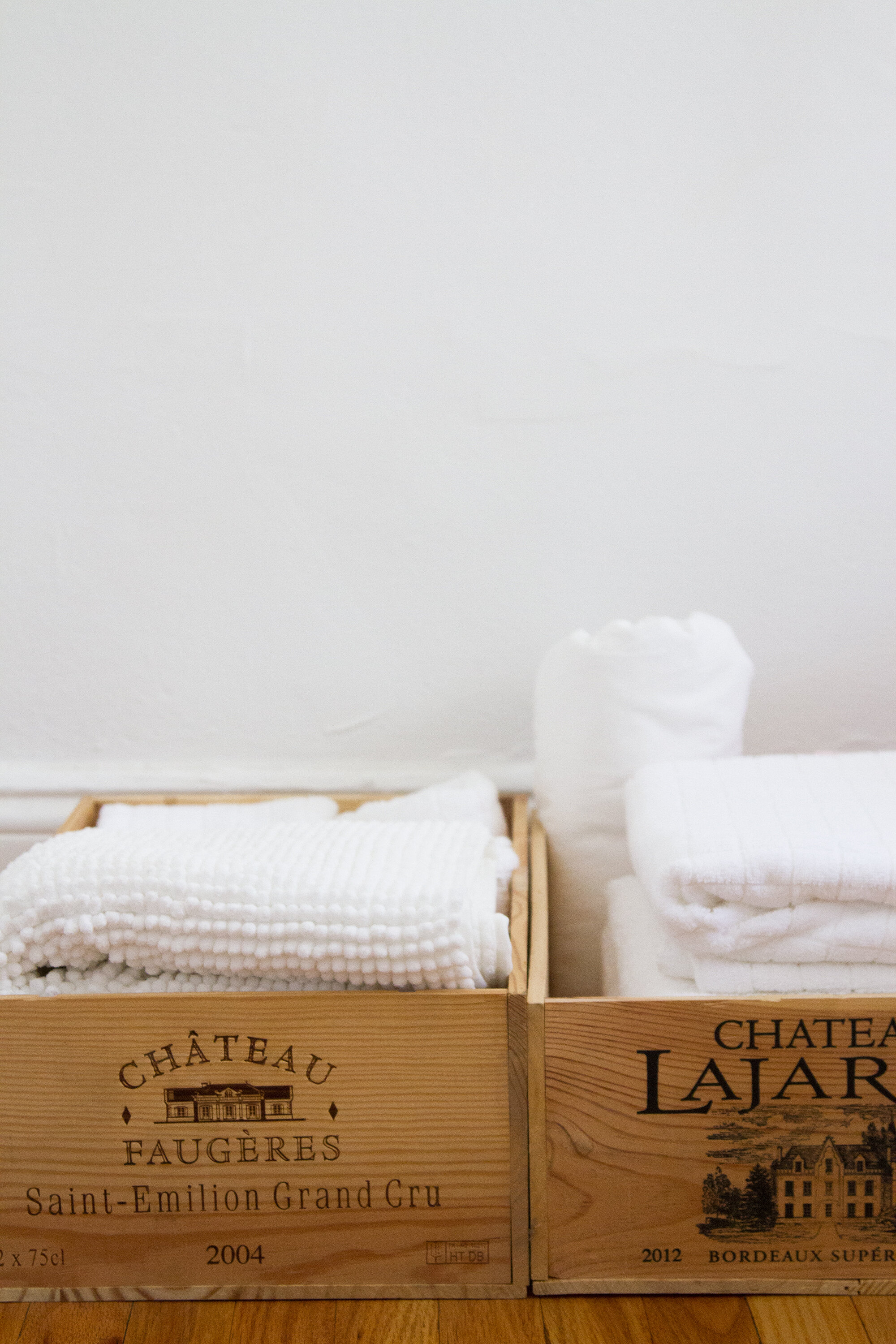
Erin: When you think of the word “storage,” what comes to mind? Light-filled dream closets? Housework and drudgery? What kinds of emotions or memories come up?
Maureen: The word storage? Ha! one of my favourite moving words! To me, storage means possibilities. Big steel containers and ill-lit rooms in modern warehouses were the first images that popped in my mind. Storage means that I don’t have to unpack everything right away—which I’m known for not to do—even for months. Daniel is the one who unpacks the most needed boxes right away and I start with the smaller boxes (read: nice stuff and decorative items). I’m a slow unpacker and I like to get to know a place first. So storage to me means, I can put items away and decorate with the ones I haven’t used in a while. Although now, since we are here in New York, the word storage is synonymous with precious. To have enough storage space in an apartment in New York, feels really special!
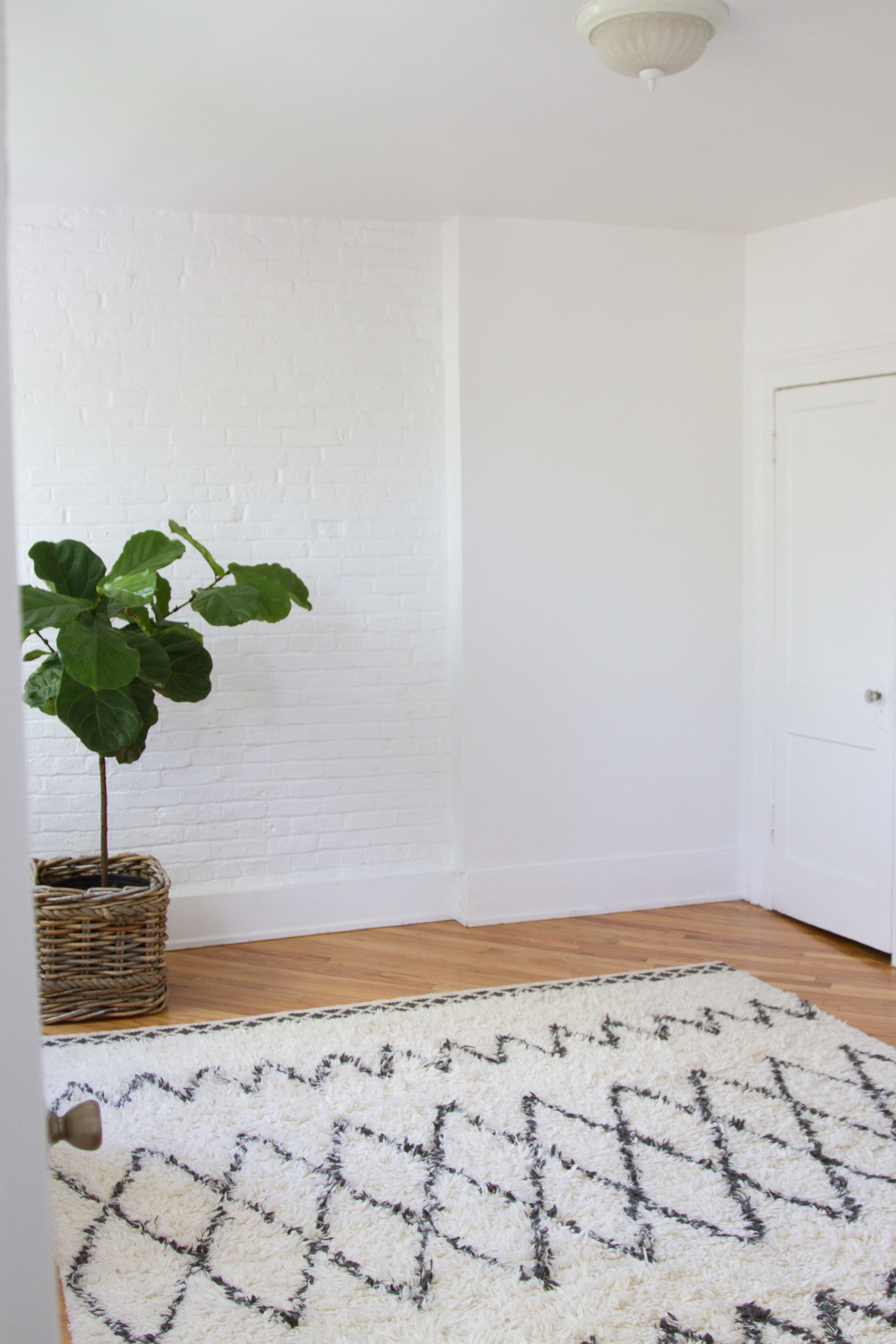 Erin: You’d been living in Dubai for several years before setting off on your trip around the world. For a lot of people, embarking on this kind of adventure means needing to go through a kind of reckoning with their belongings. Did you experience that? What kinds of arrangements—if any—for the stuff of your life did you have to make before taking off? Were there certain criteria that you developed for what you would keep and what you might part with?
Erin: You’d been living in Dubai for several years before setting off on your trip around the world. For a lot of people, embarking on this kind of adventure means needing to go through a kind of reckoning with their belongings. Did you experience that? What kinds of arrangements—if any—for the stuff of your life did you have to make before taking off? Were there certain criteria that you developed for what you would keep and what you might part with?
Maureen: The move from Dubai was actually an easy one. Due to so many moves, we are not really attached to most of our stuff. We don’t have a special ritual before each move—we simply sort what to keep and what to part with. We pack our personal belongings ourselves before the movers come in. We also make sure that the last week before a move, we are not staying in an empty house without anything. We learned that after a while and we have seen it go wrong many times with others. It’s typically been a very busy time, with school endings, birthday parties, last-minute errands, stuff to sort out, administrative work, and goodbye dinners. Moving to another country does not require the same logistics as moving to the other side of town. There will be a gap where you have no house or an empty one, so having a calm place where you can sleep and eat plays a big part in moving without having stress.
My criteria of keeping items? Mostly it’s been personal mementos or the things that are made by the girls as well as all of my photographs. Also our big cabinet and wooden table. We like to change things around with every move, so clearing out is good. Since we lived in a big place in Dubai, we had some smaller items to give away and many boxes went to the Philippines to help out people who really needed clothes and household items.
Also, for the first time ever, we sold bigger things for bottom prices, instead of giving them all away for free. (Think brand new kitchen appliances, a huge carpet, all the fitted window treatments, a big sofa and some new household items.)
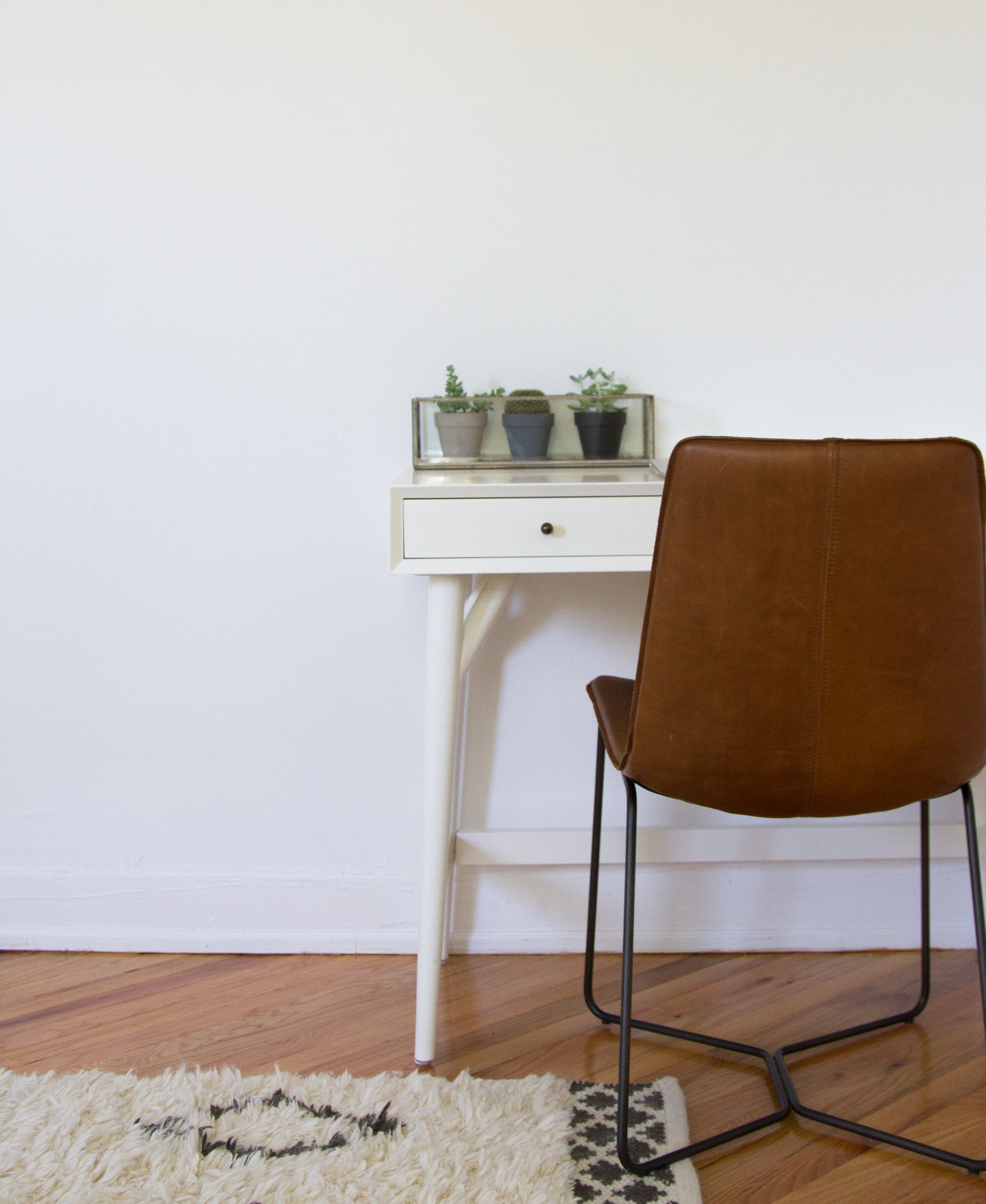 Erin: The majority of your family’s belongings are currently in a container that will make a slow journey via cargo ship to Brooklyn. What has it been like to settle into a new home with only your suitcases?
Erin: The majority of your family’s belongings are currently in a container that will make a slow journey via cargo ship to Brooklyn. What has it been like to settle into a new home with only your suitcases?
Maureen: Strangely enough, it feels not so bad. After being on the road for months on end, we don’t really need a lot. We came with only our four back packs so moving is a big word this time. We stayed for five weeks in an AirBnB apartment which had only eight pieces of cutlery, plates, mugs, glasses and towels. Then we had to take our bags and stay in a hotel for a week. In this period, and of course during our travels, we really started to notice that we do not need a lot. We do not miss a lot and we really are not looking forward to having much more stuff. Also, most apartments in New York are small in size, but after all the hotel rooms, hostels and AirBnB places we have stayed in, living in a small but empty apartment feels pretty big and good actually!
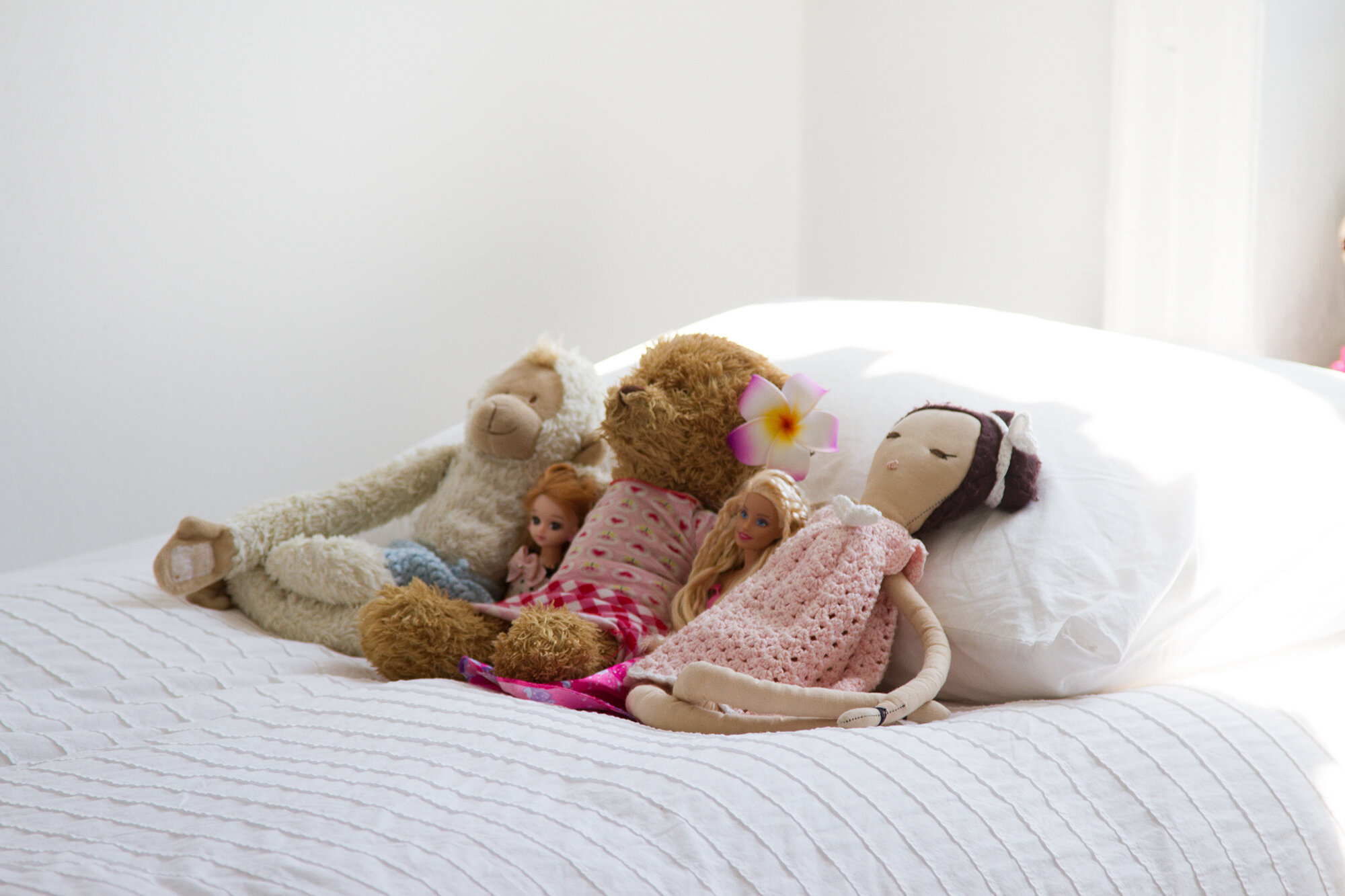 Erin: Can you think of the first time you packed for a trip as a kid? What did you bring? Has your approach changed as you got older, or have you always been the same kind of traveler?
Erin: Can you think of the first time you packed for a trip as a kid? What did you bring? Has your approach changed as you got older, or have you always been the same kind of traveler?
Maureen: The first time I can remember as a kid, was our summer trip to Spain with my family. We went by car from Amsterdam and it took us a couple days to get there. We only were allowed a small suitcase so besides some clothes, I always packed some books to read. You could always find me with my nose in a book. As I got older, even before I had children, I always packed too much stuff I didn’t need or would not wear. I still have a slight tendency to pack too much; I always think “What if I need this or that?”.
But after so many years of traveling around, I’m much better at sorting things out. I have to say, I will never get as good in sorting or as quick as my husband when it comes to packing, but I’m getting better. The truth is, I love to travel but I really, really do not like packing. Funny enough, Noa is more like me and Zoe is more like Daniel, when it comes to packing. But during the world trip we all learned how to unpack and repack our own bags at record times. We used small packing cubes to divide our clothes and smaller items in the bag packs and this really was a game changer! Even now when we travel, we use the packing cubes in our suitcases and it makes life so much easier. On my last trip to Amsterdam I even packed without dragging my feet. 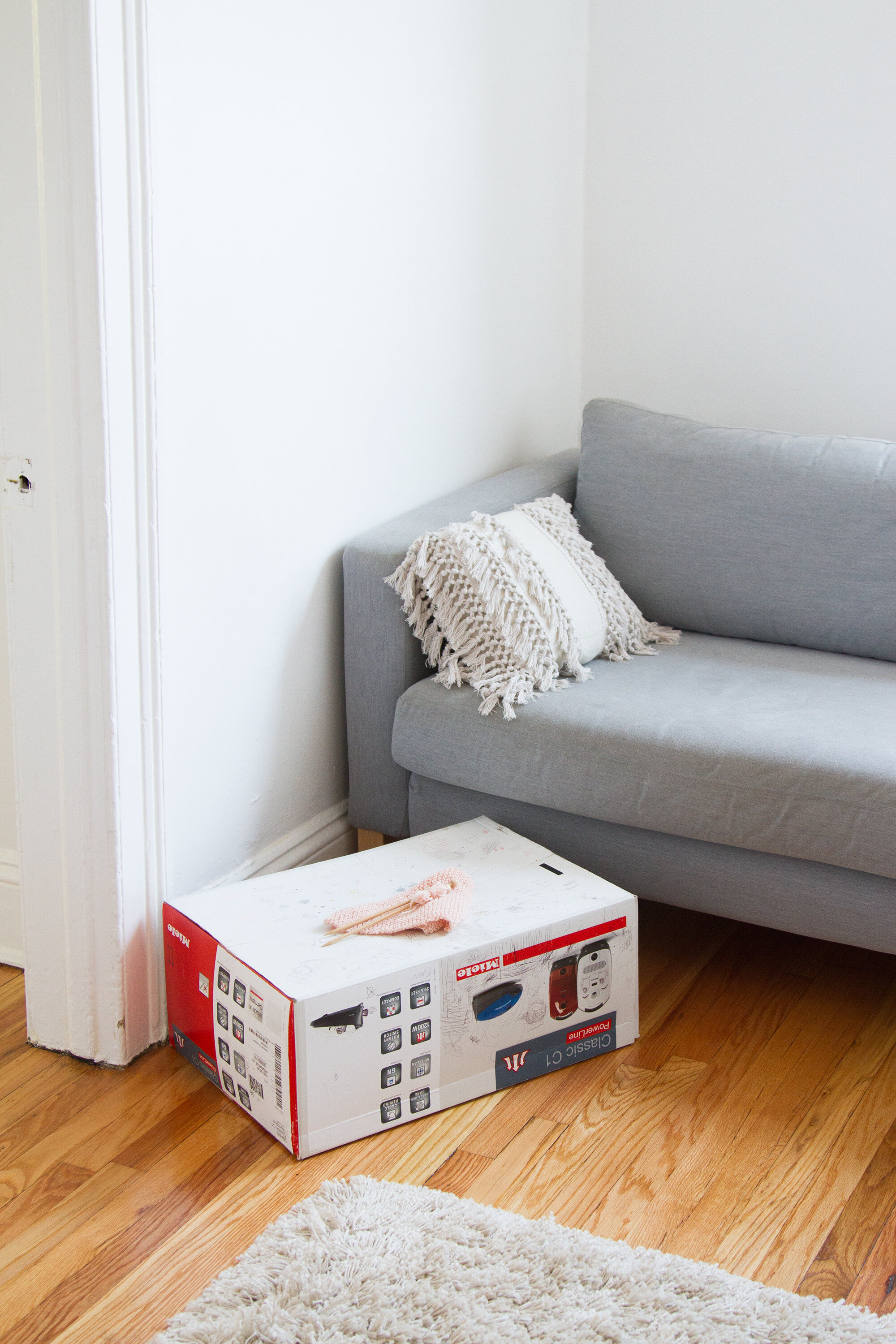
Erin: Has living in a relatively empty apartment for changed your relationship to the things you’d typically keep in your home? Is there anything that you miss in particular? Anything that you’re surprised to learn that you don’t? What’s been your approach to new acquisitions since moving to Brooklyn?
Maureen: Yes, it has changed things for me. We normally don’t have a lot of stuff anyway in the house, besides my unpacked boxes which rotated and became lesser with time. Living without our belongings for a short amount of time, made us re-think what we really wanted to have in the house. Before and after every move, we’ve always have a temporary period without our belongings and we stay either in a furnished apartment or a hotel. But this time, after more than six months living without it all, it has put things even more in perspective. The belongings that are not replaceable, or the more personal things like my photographs, are the things that I miss. Even a simple photo on a wall and some flowers or a plant in the house makes a room come alive. To me they make a house personal and feel like home.
So far, for this Brooklyn apartment, we’ve not bought much; our box spring beds with one set of bedding each, a small sofa, a kitchen table, a plant, cutlery, plates and three rugs. [Editor’s note: When I shot this story back in August, Maureen hadn’t yet purchased the new kitchen table.] We still use the vacuum cleaner box as a makeshift ‘coffee table’ because I refused to buy another one. So yes, we are still ‘glamping’ in a fairly empty apartment but we know it’s not forever.
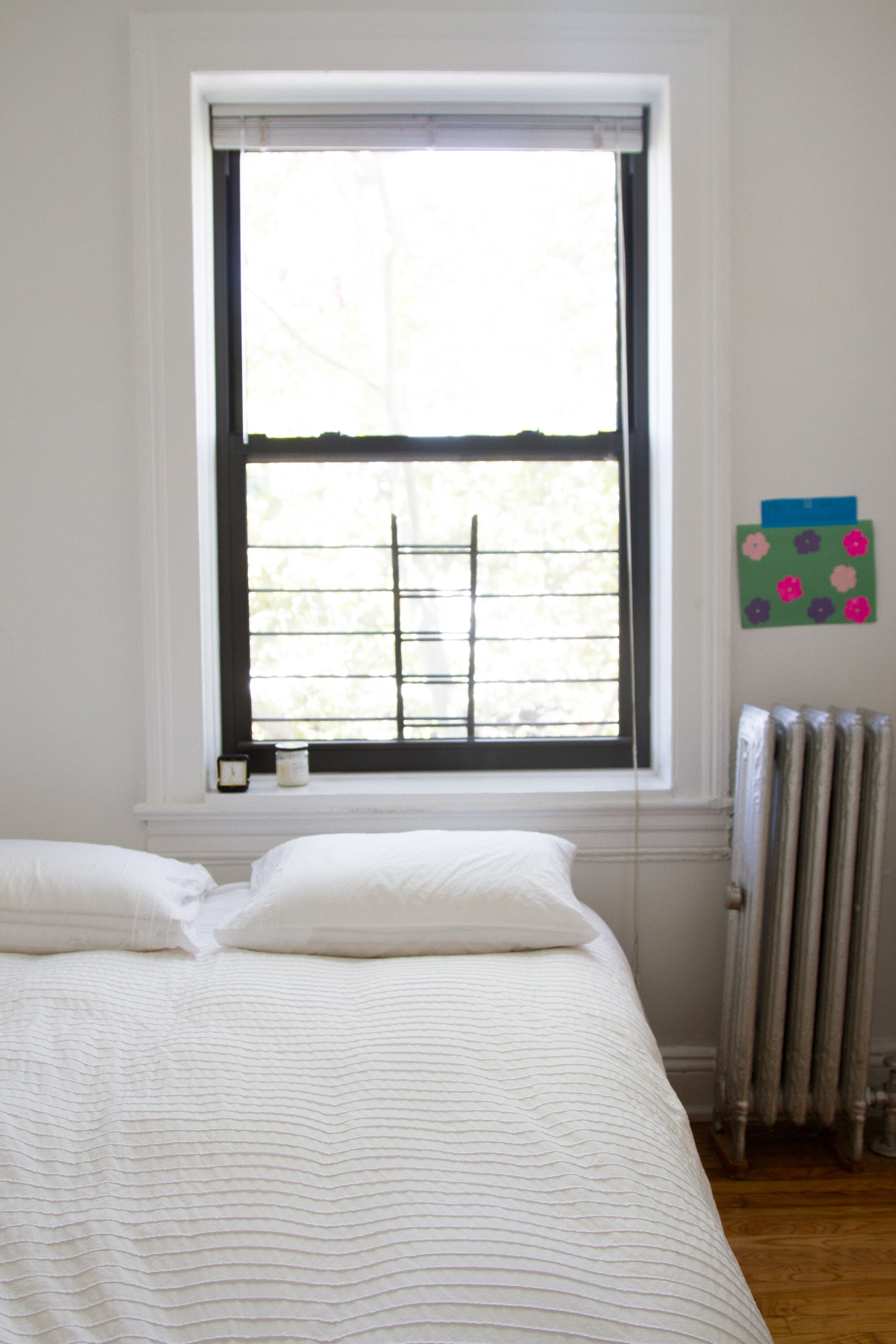 Erin: When your container finally makes its way here, what kind of unpacking process do you anticipate? Will you have a place for everything that you put in it before you left or will you need to go through a second round of sorting?
Erin: When your container finally makes its way here, what kind of unpacking process do you anticipate? Will you have a place for everything that you put in it before you left or will you need to go through a second round of sorting?
Maureen: Oh, definitely there will be some sorting out to do! Like I said, living without our belongings for such a long time—technically since July 1, 2015—made it really clear what is truly important to have, what we really need and what we really want. Besides, we are now starting to make new memories here in New York, which brings with it new items. So I’ve started to sort things out that somehow already came into the apartment. I don’t want to have a big clear out anymore, I rather do it in parts now. (I also learned this from you Erin, I have your book and especially now we live in a much smaller place than where we came from, I fully grasp what it means to stay on top of clutter and putting things in their right place. So thanks for that!)
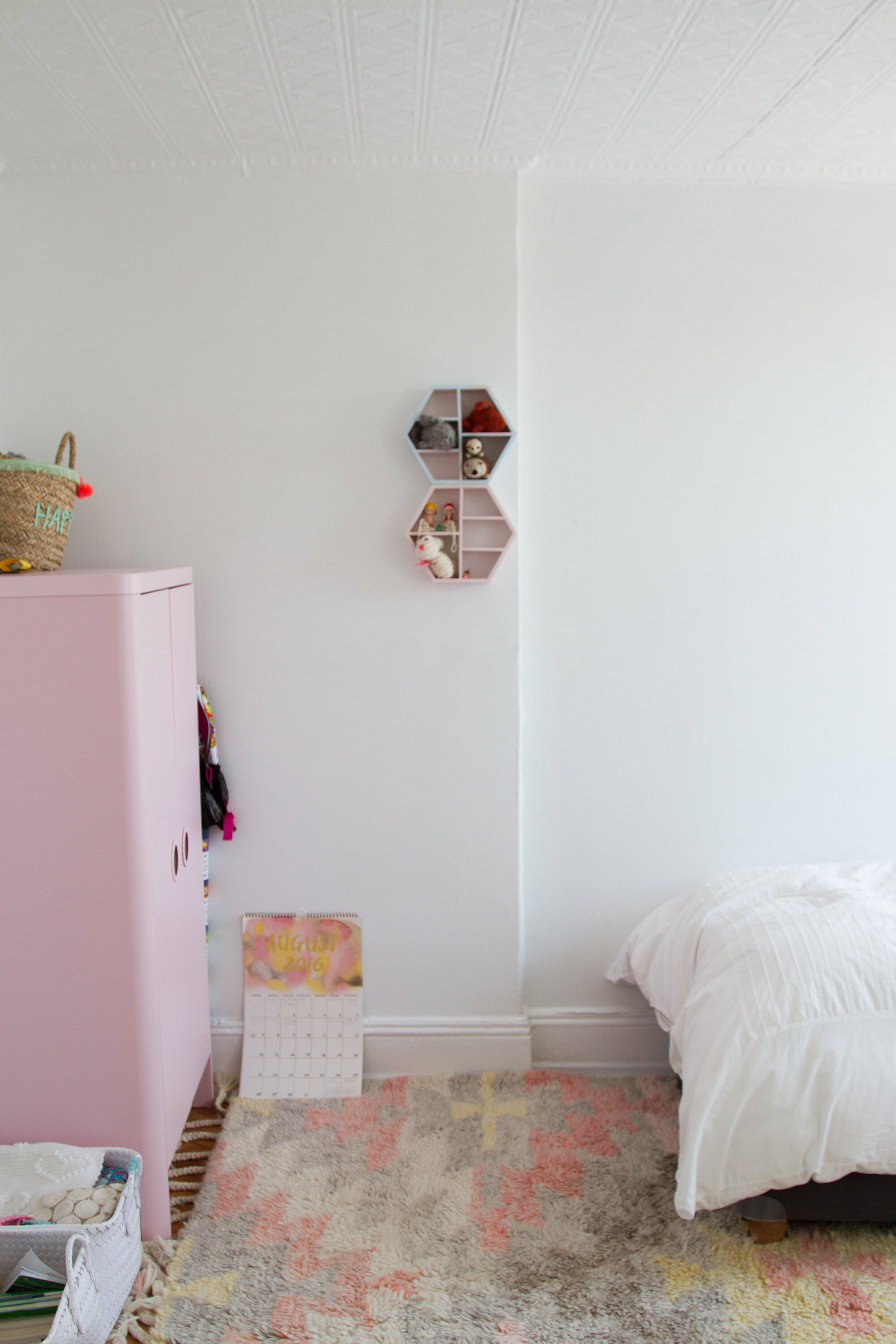 Erin: You have two kids who are fairly far apart in age; 9 and 19. How do each of them react to your transitions? Have you ever encountered reluctance or opposition? Do you have any advice for parents of kids who are thinking about moving their families?
Erin: You have two kids who are fairly far apart in age; 9 and 19. How do each of them react to your transitions? Have you ever encountered reluctance or opposition? Do you have any advice for parents of kids who are thinking about moving their families?
Maureen: Yes, our girls are 10 years apart and I can tell you that it doesn’t really matter what age they are when you move to another country. The younger they are, the easier it is, that’s for sure, but it’s more important to look at each child’s character. Everyone is different. As long as parents are relaxed and open about a move abroad, children will adapt to the situation. Some children quicker than others of course, but most of the time, the children are adapting much quicker to their new home country than the adults do.
For us, both our girls don’t know any better as they grew up with this double lifestyle. We have our old life with both our families and friends back in Amsterdam and our new life, wherever that may be. We simply mix them together. That’s why I named my blog The Moksi Collective, which literally means The Mixed Collective.
Our oldest, Noa, was four years old when we first moved away. For her, the moves abroad are just another way of living life. She adapted quickly each time, although at one point when she was nine years old, it was a little harder for her at the start of school, since we literally moved to Switzerland with only our holiday suitcases and school started that week as well. She needed that time to adjust naturally, which was something we have learned since then.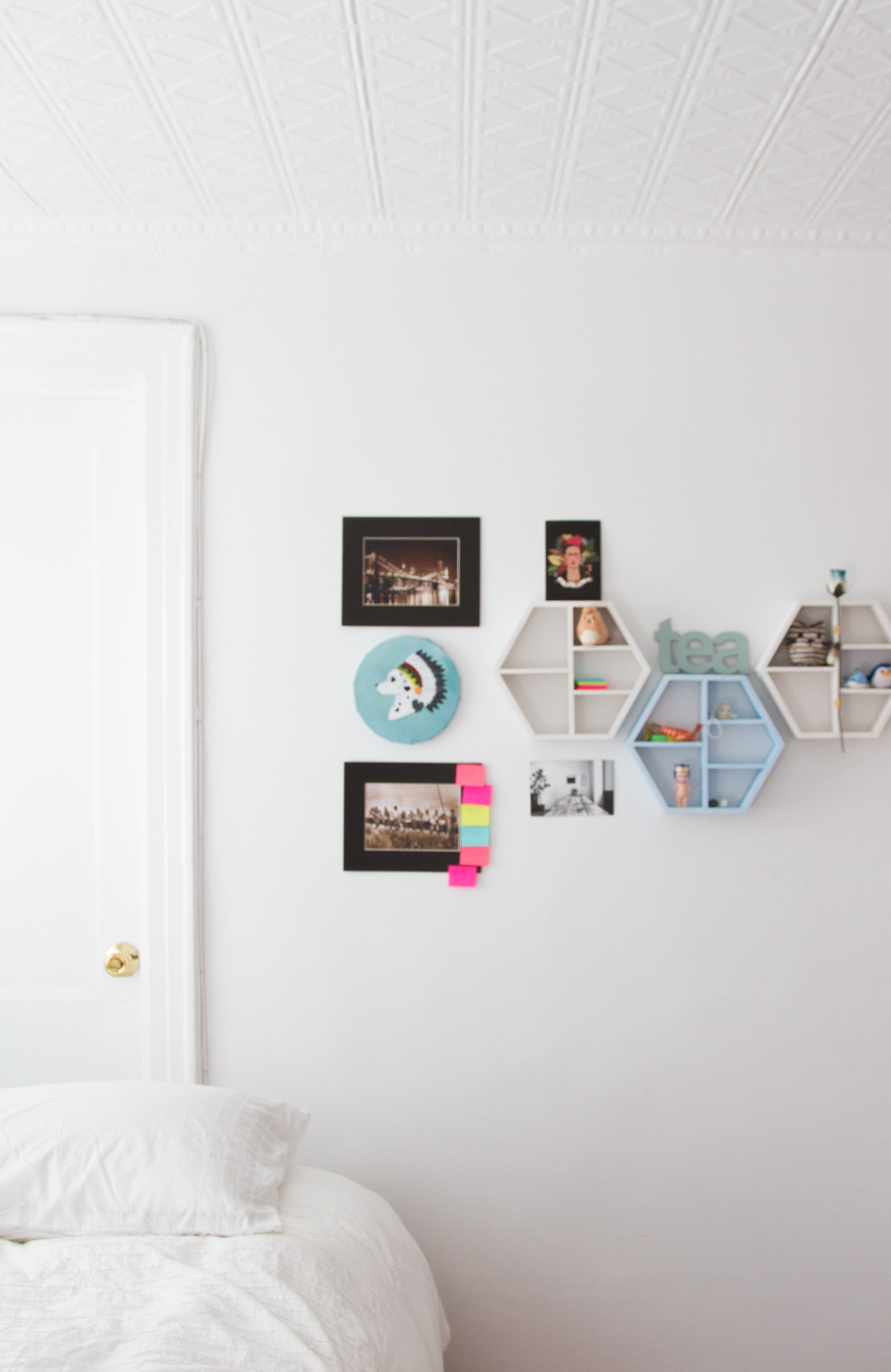
Our youngest, Zoe, was born in Switzerland and has never lived in Amsterdam. I remember when she was around four years old, she stepped through the front door of her grandparents house while looking around she said to me “Still the same house? Don’t they move?” To her, at that time and age, to be still living in the same house was something strange.
It helps that almost all of my children’s friends are children who have the same kind of lives as they do. During our world trip they got to visit and catch up with a couple of them in different countries, since they moved on as well. We also keep speaking Dutch at home and we visit our families and friends a couple times a year, so they feel very connected with everyone still. The girls have also always gone to International Schools, so where ever they lived, the school systems were pretty much alike and they stayed on the same level of teaching methods. This is the first time that we’ll start with a public school for Zoe and Noa will go to college.
Finally, we also are always very open and honest about all our plans, so nobody is surprised when a move is coming up and we always talk about every change before it’s time to act on it (well, besides that one time when we moved to Switzerland…).
I think that because of all this traveling, moving around, and adapting to new environments and cultures and making new friends, our girls are very flexible and as a family unit we have become much closer. The girls speak different languages, they’re open minded towards other people, they know how to be appreciative of what they have, and they’re not afraid to make changes. They see the world in a much broader way because of this way of living. I believe there are even terms for children like them: Third Culture Kids or World Citizens.
To us, they are simply our girls and this has simply become our way of living. We have learned that it’s not important how much stuff we have. As long as we are together, we are home.
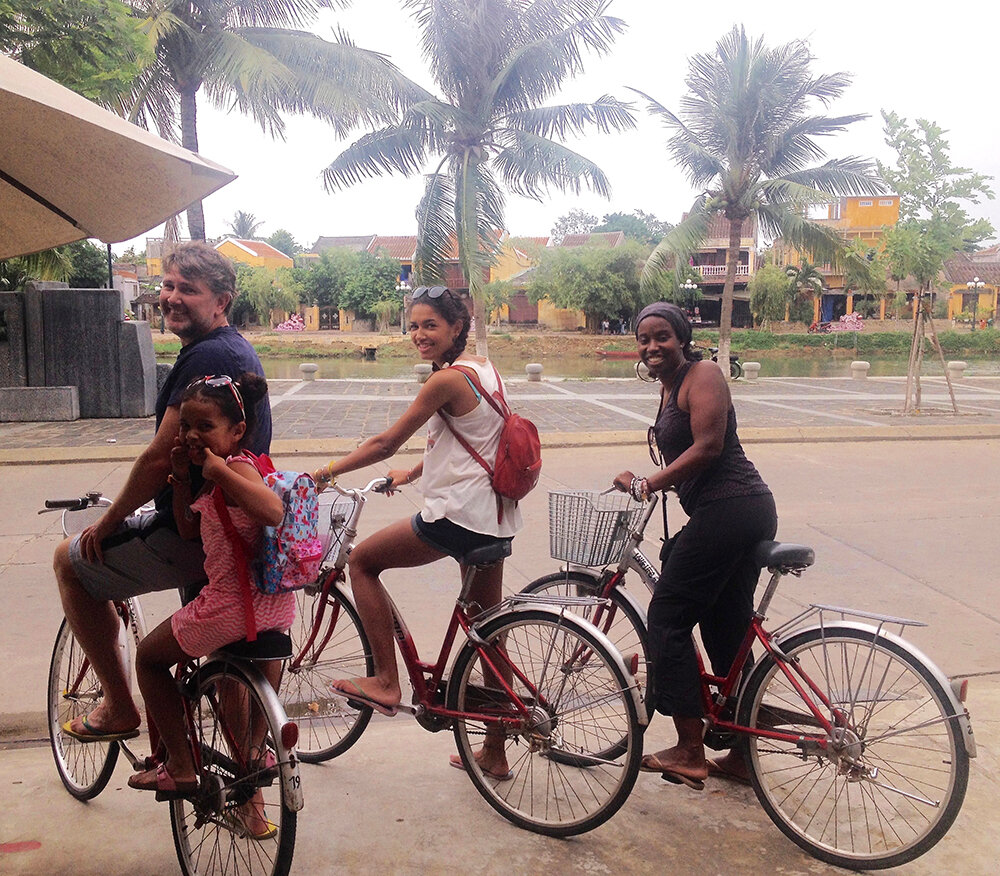
To learn more about Maureen and her lifestyle, head to The Moksi Collective.
To follow along with Maureen on Instagram, head to @moksicollective
The Simple Matters Series is inspired in part by curiosity piqued while writing my book of the same title. I wanted to know what simple matters were for other folks. And why simplicity mattered to them in the first place. My own story came out in January of 2016. It’s available right this way.

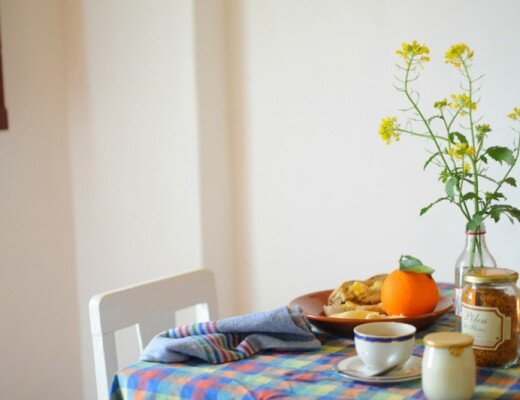
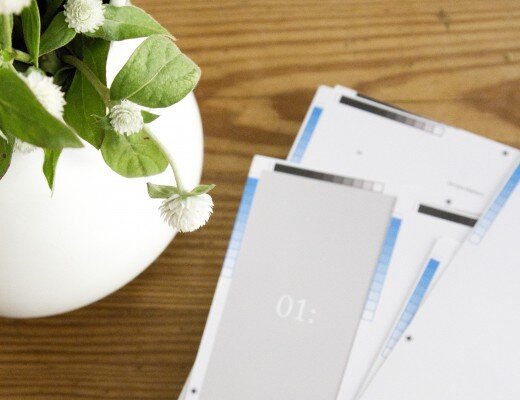
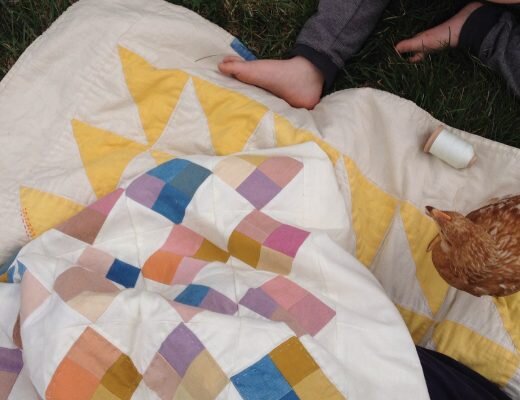
18 Comments
I love your blog and look forward to it every day.
On minimalism, though, I can’t help but notice that so many of these spaces seem to start with a blank slate. The possessions are new to them and fit the space intentionally. Which is lovely. But what about the keepers of family history? So many of us young ones can live this way because our parents keep our grandparents treasures in their attics or the piles of photo albums on their shelves. But I wonder if you would keep your eye out for an older minimalist who has somehow learned to curate those cherished pieces of history without simply throwing it all out or sending items back to loving parents to hold onto?
Thanks for your note! I agree an older perspective in the series would be really fascinating. I’m not sure though that it’s a totally accurate assessment that many of the folks in this series don’t hold on to family keepsakes. I’m not sure if you’ve read my particular take on this in my book, but to use my own family as an example, our apartment is filled with small family mementos, furniture passed along from family members, and other reminders of our past!
HEB
I find Kate’s comment of particular interest. Erin, I have not read your book but do enjoy reading your blog. My husband and I are in our late 40s and are entering a different stage of life. Over the years we have admitedly had difficulty finding our style (I think it stems from all things 80s ha!). During our 27 years of marriage my parents have played storage facility for many family heirlooms (term used loosely) and pieces we no longer wanted as we sought to simplify and live with what we truly use. However our parents are now at the age (late 70s) where they are wanting to downsize. Their generation has a hard time understanding not saving everything or making a piece work (even though it really doesn’t work). It’s an interesting stage to be entering. Kate, you have me thinking about our own children as they enter their 20s. I’m wondering how we will navigate these waters we are sandwiched between. Erin, I’m sure there’s a lesson in how emotionally attached we become to objects in here, but it is definitely a perspective to explore.
Yes: totally. I talk quite a bit about this in my book. Would love to include an older perspective in the series.
Hi Kate! I understand what you are pointing out – in our case, we have some items that are older and have sentimental (family) values. Unfortunately they are not with us (still in the container) and therefore not in the photo’s. Thanks for your comment!
Love this series. Look forward to it every week!
This was a really interesting one! What a neat family and I love the story of how the two of you met by happenstance – sort of like a meet cute but for friends! xo
Hi Roxanne! That’s sweet of you to say. And Yes, bumping into Erin was funny and surreal. I’m glad she asked me to participate in this series. Thanks for your comment!
Such a beautiful family and story! Thanks as always for sharing. 🙂
Thank you Emily! Glad you enjoyed it – Erin asked great questions xx
I was surprised by how much I loved this as I’m very much a ‘homebody’ and never seriously thought of living outside the UK for more than a year or two, but it was so interesting seeing this perspective, especially the answer to the final question about the effect on Maureen’s children. I really admire that lifestyle and can see there are loads of benefits. Also – great questions Erin! Started really insightful and interesting ponderings, both on Maureen’s end and when I reflected on them regarding my own life. x
Hi Georgie! You made me smile – love that you liked it so much, as a self described ‘homebody’. And Erin asked me great questions indeed! Thanks for your comment! x
Thank you both so much for this! My family has been ping ponging back and forth from Ecuador to the US for the last year and a half (my son’s whole life!) and as we prepare for yet another leg I’m definitely having some anxiety about how all this is affecting him. Your interview is a great reminder that it’s probably affecting me more, and he’ll be fine as long as I can keep a calm head.
One thing I would have loved though is just a small mention of how you work the economics of it all! Again, as someone who is on the path to lead a somewhat similarly nomadic family life, at least for the next few years, I know those containers ain’t cheap! I’ll definitely check out the Moksi Collective blog for more about your story.
Hi Mado! Glad you liked the interview – it’s always not an easy task to transform 14 years of living into one interview. Erin asked me great questions regarding her Simple Matters topic – hence the missing parts of many more subjects, like money.
In our case, with every single move we had to re-think our finances and decide what our priorities were at that moment in time. This move – after a world trip without a steady job – was completely different again. So money wise, it’s difficult to say what is the best way forward – it will differ for everybody, every time. But if you have specific questions, for instance about the container, do send me an email. Also, all the best with your next move – if I have learned one thing, is that everything will work out fine, as long as you stand behind your decisions. Thanks for your comment! x
Maureen is a fantastic global citizen & an inspiration to all who meet her. Her joy of this life shines out of her every cell and I have had the very best fortune to meet her on her journey (& mine) and count her as a very dear dear friend. Loved the article ladies – thank you! Louise x
Hey Louise! What more can I say then, Thank you my friend! We learned a lot from each other xx Talk soon
Oooh. I love stories with a Noa in them. I wonder if my Noa will be a world-traveller or not. 🙂
Erin,
Thank you for such an inspiring piece! A family of five, we are about to “downsize” and move to a smaller house. This interview and your blog are helping me streamline and only pack what is essential.
Comments are moderated.